Associate investor within the industrial ventures fund of Bpifrance, the French public investment bank. Prior to this, Jean worked in the merger & acquisition team of BNP Paribas based in Singapore and in the life sciences division of software editor Dassault Systèmes in France. A French civil servant, Jean graduated from École Normale Supérieure in Mathematics and is a Corps des Mines engineer.
Laurent Marcadier
Laurent Marcadier worked between 1997 and 2004 as a judicial magistrate, in the prosecutor’s office in Créteil, France in the organized crime department (drugs, weapons, human trafficking and counterfeit). He then held the position of Secretary General of the Paris Regional Court, followed by the Paris Court of Appeal. Appointed Chief of Staff to the Secretary of State for Justice in 2009, he then joined the staff of the Minister of the Interior in 2011. In 2013, he joined the LVMH Group as Director of Asset and People Protection. He is in charge of protecting the Intellectual property rights of 28 Houses of the Group on physical markets, as on Internet and Social Media.
Alain Juillet
Alain Juillet is President of the Académie de l’intelligence économique and Tackling against illicit trade Association (ALCCI). After some years as officer in french special forces, he served as Head of Corporate Development of Pernod Ricard, and CEO of french and european agri-food companies, ending as CEO of Marks & Spencer France. He is now Senior Advisor of Orrick Huttington Sutcliffe law firm. Between 2002 and 2003, Mr. Juillet has been Intelligence Director for the French General Directorate for External Security (DGSE) of the French Ministry of Defense, and then assumed the role of Senior Official in charge of economic intelligence to the Prime Minister’s office until 2009. In 2010, he was awarded as Commander of the legion of Honour. He is also professor in french and foreign business schools and universities in competitive intelligence, crisis management, security and geo-economic.
Vergil Chitac
Senator, president of Romanian delegation at NATO Parliamentary Assembly. He carried out assignments on board different MCM vessels of the Romanian Navy, before pursuing his career in the Naval Academy, where he finally took over the position of Commandant in the period 2010-2016. After retiring from Navy in 2016 he was elected as senator representing Constanța county, and was appointed as chief of Romanian team at NATO PA. He holds a PhD in Naval Architecture and has published many manuals and books, as well as papers in the scientific annals of various national and international conferences.
Pierre M’Pelé
Mercy Ships Ambassador for Africa, Dr Pierre M’Pelé became a physician in 1982. He is specialized in epidemiology, public health, infectious diseases and tropical medicine. Between 2007 and 2016, Dr M’Pelé has been WHO Representative in several African countries. Previously, he was President of the Society for Aids in Africa (1995-2005), Director of the National AIDS Control Program in Congo (1987-1998)and Director of the National Laboratory of Public Health. Dr M’Pelé published in February 2019 his first autobiography: An African Doctor’s Journey: From The Beginning To The Near-End Of The AIDS Epidemic In Africa (published by Maia France). He graduated from the University of Paris.
Robert Dossou
Lawyer at the Paris Bar and currently practicing at the Bar of Benin, President of the African Association of International Law. He is also a member of the Curatorium of the African Academy for Regional Cooperation and a member of the honorary committee of the Fondation René Cassin (France). Former Chairman of the Bar, Robert DOSSOU was a member of Parliament, Minister of Planning and then Minister for Foreign Affairs. Former President of the Constitutional Court of Bénin, expert consultant, he has carried out and still carries out various missions for various international organizations: UN, AU, ECOWAS, OIF… etc. He is an arbitrator of international trade. President of the National Preparatory Committee of the National Conference of Benin, he is the author of several publications on democracy, human rights and the democratic transition. A former professor at the University of Paris I and then at the University of Abomey-Calavi (UAC BENIN), and honorary dean of the Faculty of Law and Political Sciences of the UAC, he is also associate member of the French Académie des Sciences d’Outre-Mer, Grand Officer of the National Order of Benin and Commander of the Academic Palms (France).
Vidéo. Michel Foucher : « L’Europe doit venir au monde »
Ambassadeur Michel Foucher, Chaire de Géopolitique mondiale au Collège d’études mondiales de la Fondation Maison des Sciences de l’Homme (Paris). Conseiller de la direction de la prospective du Ministère des Affaires étrangères et européennes. Directeur des études de l’Institut des Hautes Etudes de Défense Nationale (2009 à 2013). Michel Foucher a publié de nombreux ouvrages, dont “L’Europe, un dessein, un destin”, éd. Marie B, 2019. Résumé de la vidéo par Joséphine Boucher pour Diploweb.com.
Venir au monde c’est suivre le conseil de Machiavel qui dit : sortez de chez vous et considérez ceux qui vous entourent. Savoir d’où on vient et ce qui a présidé aux origines de la communauté économique devenue Union européenne fonde aussi une conscience tragique historique puissante. Et demain ? Une passionnante conférence prononcée dans le cadre du Festival géopolitique. Vidéo accompagnée d’un résumé rédigé par Joséphine Boucher pour Diploweb.com.
« L’Europe doit venir au monde » : le titre choisi pour cette conférence porte un double sens. Venir, c’est aller vers mais c’est aussi advenir au monde, puisque l’ouverture nécessaire de l’Europe sera la condition de son existence. Pour illustrer cela, la formule suivante émise par le politologue et diplomate américain Henry Kissinger (1923 – ) semble résumer l’ensemble de la problématique de cette conférence : « L’Europe ne peut pas se couper de sa quête contemporaine pour un ordre mondial en faisant de sa construction interne son objectif géopolitique ultime. »
Venir au monde, c’est confronter et non pas subir et c’est aussi raisonner à une autre échelle que les échelles de référence habituelles. L’enjeu aujourd’hui est d’ajouter une échelle de référence à celles qui ont précédé, à savoir le franco-allemand, l’échelle continentale avec l’élargissement de 2004 ou encore l’euro-méditérranée. Penser la coopération européenne à l’échelle mondiale ne va pas de soi, car sur tous les sujets, les désaccords sont plus importants que les accords. Il faut donc élaborer une revue stratégique de tous les défis d’échelle mondiale pour savoir dans quelle mesure on est en accord ou pas.
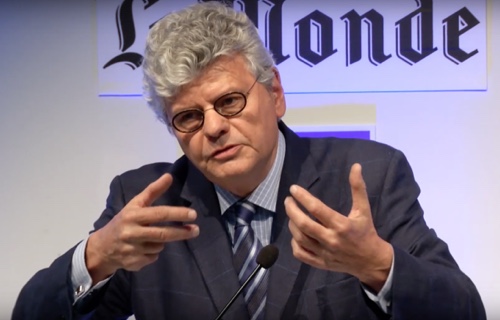
S’il est intéressant de parler de géopolitique, il convient aussi de traiter de l’Histoire en revisitant les grands récits fondateurs de la construction européenne. L’historien britannique Tony Judt rappelle à ce titre que pour que l’invention européenne soit possible, « il a fallu que des dirigeants éclairés créent des institutions à vocation prophylactique capables de tenir le passé en respect des nationalismes extrêmes. L’Europe post-nationale, pacifique et coopérative de nos Etats Providence n’est pas née du projet optimiste qu’imaginent aujourd’hui de manière rétrospective les euro-idéalistes. La construction européenne est la fille vulnérable de l’angoisse. » Telle est la matrice fondatrice du projet européen, qu’il ne faut pas oublier aujourd’hui. En effet, depuis le premier jour, dès la fin de la Seconde Guerre Mondiale, la construction européenne s’est développée dans un contexte mondial. Véritable club de vaincus mis à part les Britanniques, la construction européenne est énoncée dans ses principes par W. Churchill (1874-1965) dès le 19 septembre 1946. Il affirme ce jour là que « la première étape de la recréation de la famille européenne doit être un partenariat entre la France et l’Allemagne. (…) La Grande-Bretagne, le Commonwealth des nations britanniques, la puissante Amérique et j’en suis convaincu la Russie soviétique (…) doivent être les amis et les parrains de la nouvelle Europe ». De plus, les situations mondiales successives ont toujours été à l’horizon de la construction européenne. Si la France signe le traité de Rome en 1957, c’est à cause du contexte des indépendances de quelques anciennes colonies et c’est avec le pivot européen de de Gaulle que la puissance française se projette de l’empire colonial au champ européen. C’est ainsi qu’ont été créées une communauté de droit, une puissance juridique et une véritable fabrique de la règle. Pourtant, cette communauté ne semble pas préparée à l’événement au sens d’Hannah Arendt.
Intéressons-nous désormais aux questions structurelles et aux valeurs européennes dans un contexte international brutal et dans un ordre mondial redéfini. Quelle est la place actuelle de l’Europe entre rivalités, formation de blocs, démontage de l’ordre international libéral et compétition beaucoup moins militaire que géotechnologique ? Dans cet ordre mondial, il est impossible de ne pas traiter de la Chine. En voulant devenir une référence en termes de normes, elle rivalise avec les Etats-Unis et l’Europe dans tous les compartiments de la puissance et est en train de créer un système mondial alternatif à travers ses banques de développement, le rattrapage militaire et tout un travail de méthodologie qui comprend des jumelages avec des régions, des villes, des firmes et autres ports italiens et slovènes. Alors, quel est l’impact de cette réalité pour l’Union européenne ? En tant que première puissance commerciale du monde, elle est d’abord un marché mais aussi une cible. Qui contrôle l’Europe contrôle le monde, selon la déclaration d’un haut responsable de la politique étrangère du comité central du parti communiste chinois. Entre achats et investissements multiples en Europe au nom d’idéologies néo-libérales, des pays comme l’Allemagne ont mis en place des changements de législations pour empêcher la prise de contrôle d’actifs stratégiques. Cette forme de réveil pour protéger les industries nationales s’accompagne aussi d’une prise de conscience du ciblage dans les Balkans. Cependant, force est de constater qu’il n’y a pas de réponse européenne à cette politique chinoise. Face à la puissance américaine qui s’accroche à ses éléments de puissance que sont l’extra-territorialité, le dollar, le budget militaire, les bases militaires et le soft power, elle semble participer au réveil d’une conscience géopolitique en Europe et à l’idée d’autonomie stratégique. Sur le plan commercial, l’Europe est en position de force mais elle se trouve en position de faiblesse en termes d’extra-territorialité du droit comme en témoigne le conflit autour de la 5G. Il va donc falloir se situer dans le cadre européen face à un paramètre structurant pour 30 ans. Quant à la Russie, c’est une puissance militaire, diplomatique, nucléaire et d’influence mais c’est aussi un pays très sensible aux sanctions pour lequel l’Union européenne constitue et reste le premier débouché commercial, notamment pour le gaz et le pétrole. Il semble nécessaire de reprendre le dialogue des deux côtés entre les deux entités. Enfin, l’environnement du Maghreb et du Proche-Orient a beaucoup de conséquences directes dans tous les domaines. L’UE se retrouve définitivement hors-jeu au plan diplomatique au Moyen-Orient. Il faut en fait laisser les puissances régionales se réorganiser et rétablir l’ordre. Ce sont elles qui possèdent la vraie maîtrise du terrain, et les Européens peuvent de leur côté essayer de faire circuler des idées sur un système de sécurité régionale sur le modèle de Conférence sur la sécurité et la coopération en Europe (CSCE) devenue en 1994 l’Organisation pour la sécurité et la coopération en Europe (OSCE). Il est clair que les Occidentaux et surtout les Européens n’ont plus aucun poids politique au Proche et au Moyen Orient. S’il s’agit bien de notre voisinage critique, ce n’est pas cela qui a réveillé la conscience géopolitique européenne mais plutôt la remise en cause géopolitique de l’alliance par les Etats-Unis de Donald Trump (2017 – ).
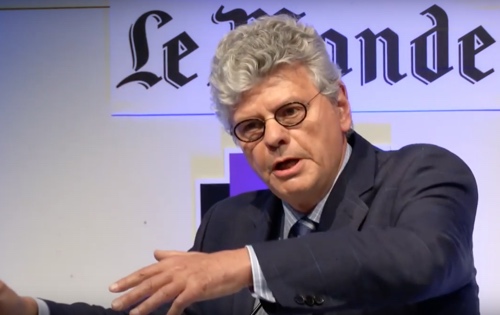
Structurer et improviser : ce sont là deux termes clés pour décrire l’Europe d’aujourd’hui. Ainsi, la crise grecque a finalement été surmontée au prix d’un choix politique par Angela Merkel de ne pas faire sortir la Grèce de la zone euro, même provisoirement. En ce qui concerne le Brexit (2016 – ), il faut rappeler qu’il ne s’agit pas d’un problème européen mais d’un problème britannique, celui du parti conservateur et du parti travailliste. Il a même renforcé l’Union européenne en témoignant de la cohésion des 27. Contrairement à tout ce qui est dit à ce propos, ce n’est donc pas une crise de l’UE mais la stratégie d’une petite fraction des conservateurs nostalgiques de l’Empire. Par ailleurs, si l’on veut aborder le sujet des problèmes internes autour des souverainismes et autres populismes, il convient de noter qu’ils concernent seulement certains Etats et non pas l’ensemble des 27 ou des 28. Qu’est ce que le populisme ? Au lieu d’une idéologie, il s’agit plutôt d’un style qui explique au peuple qu’il y a des solutions simples aux problèmes compliqués, à travers des outils simples comme le référendum et les réseaux sociaux. Est ainsi entretenue une forme de fantasme d’un peuple élu et homogène contre des dirigeants qui comploteraient contre eux. Ce style de campagne permanente met en scène des ennemis verticaux, à savoir l’Union européenne, et des ennemis horizontaux que sont l’autre et l’immigré. Pour saisir tous ces enjeux, il faudrait prêter plus d’attention aux cartes électorales. En effet, les cartes du Brexit, du Front National aux présidentielles de 2017, de l’Alternative pour l’Allemagne (en allemand : Alternative für Deutschland, AFD) dans les anciens länder allemands de l’est du pays, du vote 5 Etoiles et du vote de la Ligue en Italie disent quelque chose et définissent en réalité des zones prioritaires d’action qu’il faudrait prendre en compte. En ce qui concerne le cas polonais, il s’avère assez particulier dans la mesure où il traduit une réaction conservatrice face à une modernisation rapide, dans un pays où l’Eglise catholique a un rôle prépondérant, est une puissance financière et d’influence considérable. Elle exprime un certain malaise d’une partie de la population face à la modernisation accélérée d’un pays qui par ailleurs a un taux de croissance économique supérieur à 5%.
Suite aux élections européennes de mai 2019, peut-être pourra-t-on espérer que le Parlement européen devienne un véritable parlement, c’est-à-dire un lieu de débat. Jusqu’à maintenant, diverses coalitions rassemblaient le Parti Populaire Européen, les Socialistes européens, les Libéraux et les Verts. Cette forme de parallélisme convergent des nuances cache une absence de débat sur le fond. Il y aura sans doute après les élections des groupes dispersés qui apporteront la contradiction au projet européen habituel et connu à travers des débats, obligeant alors les pro-européens à mieux préciser les finalités de la coopération, ce dont ils se dispensent actuellement.
Finalement, il est possible de parler d’une véritable prise de conscience de ce que Michel Barnier appelle les intérêts partagés des Européens, c’est-à-dire que le monde ne leur est pas spontanément favorable et qu’ils ont des intérêts à promouvoir et à protéger. Pourtant, c’est au moment où commence à s’éveiller une conscience géopolitique qu’il y a des faiblesses internes. Autrement dit, l’Europe de l’Union progresse en tant qu’alliance d’intérêts objectifs mais elle est mise en cause comme union des valeurs.
Pour conclure, venir au monde c’est suivre le conseil de Machiavel (1469-1527) qui dit : sortez de chez vous et considérez ceux qui vous entourent. Mais comment convaincre la jeunesse de l’utilité de l’UE quand elle a tant de mal à s’incarner ? La réponse se trouve dans Education européenne (1945) de Romain Gary (1914-1980), qui rappelle la longue durée de cette coopération entre Etats nations qui ne va pas de soi. Car il faut répéter à la nouvelle génération que ça n’est pas un acquis pour qu’elle en soit consciente et qu’elle puisse prendre le relais et assumer sa part d’Europe. Enfin, n’oublions pas l’importance de l’Histoire et de la longue durée. Savoir d’où on vient et ce qui a présidé aux origines de cette communauté économique devenue Union fonde une conscience tragique historique puissante. Or, comme l’a fait remarquer l’ancien vice-président du Conseil d’Etat Jean-Marc Sauvé, tout se passe comme si « le consensus anti-totalitaire qui a présidé à la naissance du projet européen n’était plus partagé par tous. »
Joséphine Boucher pour Diploweb.com
Publié le 21 août 2019
Kervasdoué – Du CETA aux particules ultra-fines, comment de vraies questions sanitaires ou environnementales se transforment de plus en plus en peurs irrationnelles
Que ce soit à la suite du rapport de l’Anses sur les dangers sur la santé des particules ultra-fines dans l’air ou à propos des normes sanitaires qui sont prévues dans le cadre du CETA, la quête de perfection en matière de santé est de plus en plus sensible dans le débat public.
Atlantico : Le rapport de l’Anses sur les dangers sur la santé des particules ultra-fines dans l’air ou le sujet des normes sanitaires prévues dans le cadre du CETA mettent en lumière la quête de perfection en matière de santé, de plus en plus sensible dans le débat public. N’y a t-il pas un manque, dans le débat d’opinion, d’appréciation rationnelle des risques sanitaires, qui peuvent être réels mais qui doivent être mesurés avec plus de nuances ?
Jean de Kervasdoué : Le rapport savant et détaillé de l’ANSES illustre la qualité des travaux récents en matière de santé et d’environnement, mais aussi les dérives de cette expertise, comme celles du principe de précaution.
Après une analyse approfondie des normes internationales en matière de particules ultrafines, fines ou grossières, de produits chimiques (sulfates, nitrates, ammonium …), de métaux (nickel, zinc, cuivre, vanadium …), de poussières diverses, d’émanation des moteurs à explosion, du charbon, du pétrole … ce rapport recense les études internationales qui montrent que, dans certaines conditions, une dose plus ou moins élevée de ces substances dans l’air peut avoir un effet soit sur la santé des animaux de laboratoire, soit sur celle des enfants, soit sur des sujets asthmatiques … La cible varie donc selon les études.
Remarquons tout d’abord que ce rapport néglige la source de loin la plus dangereuse de pollution de l’air pour les asthmatiques : le pollen ! Peut-être parce que cette pollution est « naturelle » et ses effets autrement sensibles.
Mais l’essentiel de ce rapport, on ne peut plus précautionneux, est qu’il extrapole les effets de ces polluants à des populations dont le degré d’exposition n’est pas mesuré, en supposant de surcroit que l’effet toxique est linéaire, ce qui reste à démontrer. Il aboutit ainsi, une fois encore, à une estimation absurde de 40 000 à 70 000 décès prématurés dus à la pollution de l’air, alors que la dernière estimation de l’effet sanitaire des cancers potentiellement évitables en France, le 25 juin 2018, le Bulletin hebdomadaire du CIRC (Centre International de Recherche sur le Cancer) soutient que les cancers attribuables à la pollution atmosphérique ne sont plus que 1466.
Bien entendu, il faut réduire la pollution atmosphérique, mais à quel coût ? En interdisant toute activité économique et tout transport par les véhicules propulsés par un moteur à explosion ? En interdisant toute cuisine au gaz dans une atmosphère confiné ? En exportant chez les autres la pollution comme le font les Japonais qui développent des moteurs à hydrogène chez eux en oubliant que ce gaz liquéfié a été fabriqué en Australie grâce à des centrales à charbon ?
Pourquoi ces estimations irréalistes ? Parce qu’en France sévit à la fois le principe de précaution, principe sans limite pour tout risque qui n’a pas besoin d’être avéré, principe absurde qui prétend prendre pour un risque incertain des mesures « proportionnées ». Proportionnées à quoi ?
Le coût de ces précautions hasardeuses est considérable et est, notamment, la cause principale de la baisse de nos exportations de produits agricoles.
Dans le privé, nos concitoyens sont probablement moins regardant sur les pratiques et les consommations nocives. Comment expliquer ce phénomène de psychologie collective (peur dans le domaine public, et relative irresponsabilité dans le privé) ?
Les humains sont très sensibles aux risques subits et notamment aux conséquences pour eux des comportements des autres, pondèrent très différemment les risques choisis et de surcroît, dans ce dernier cas, cela se fait sans grande logique. Il serait intéressant, par exemple, de savoir combien d’adeptes d’une alimentation « bio » – au bénéfice nutritionnel non démontré – fument ou pratiquent les sports de montagne. De même, je me souviens d’une journaliste m’expliquant comment elle faisait venir à grand frais de la viande « bio », tout en m’accompagnant pour fumer sa dixième cigarette de la matinée.
Ceci a toujours existé. Ce qui est nouveau, c’est à la fois la coupure des populations urbaines du monde agricole et la disparition des rites et des rythmes alimentaires. Les urbains mythifient une nature qu’ils croient bonnes. En outre, omnivores, redoutant donc toute alimentation, ils ne sont plus guidés par les rites religieux et les rythmes des repas pris en famille. A Paris, 25% des habitants ne préparent plus jamais de repas et cherchent ce qu’ils croient être bon pour leur santé.
En outre, comme la doxa de l’écologie politique diffuse dans la très grande majorité des médias, ces croyances sont renforcées par notre très naturel biais de confirmation : tout homme cherche les faits qui semblent confirmer ses croyances et ignorent ceux qui les remettent en cause. Contrairement à Saint-Thomas, on ne voit que ce que l’on croit.
Enfin, on confond risque (le fait d’avoir un couteau chez soi) et danger (celui d’être poignardé). Or, le principe de précaution voudrait nous faire croire que l’on pourrait vivre sans risque.
En quoi est-ce que l’importance donnée dans le droit au principe de précaution a aussi une influence sur cette question ?
Incapable de réduire le chômage, la classe politique a laissé entendre qu’elle allait pouvoir protéger la population de tout. Ainsi, les assurances sociales sont devenues la sécurité sociale et celle-ci s’est transmutée en protection sociale. Comme cela ne suffisait pas est venu le principe de précaution, dont les écologistes politiques, anticapitalistes et apôtres de la décroissance définissent les thèmes, les règles et les solutions et ainsi nourrissent l’agenda politique et confortent les croyances de la population. S’ils trouvent un terrain fertile, c’est parce que derrière toutes ces croyances se cachent le refoulement de la mort et la promesse, avec l’OMS, de la santé parfaite, « état complet de bien-être psychique, physique et mental, et pas seulement absence de maladie ».
Pourtant tout n’est pas affaire d’opinion. Si les vérités scientifiques sont provisoires, leur évolution, voire leur révolution, se produisent grâce à un processus complexe. Certes les scientifiques font mourir leurs hypothèses à leur place, mais leur débat est d’une autre nature et même si vous croyez que tout est relatif, quand vous appuyez sur la commande d’un téléviseur, vous voyez une image ! Terminons par une citation de Marie Curie. « Notre société, où règne un désir âpre de luxe et de richesses, ne comprend pas la valeur de la science. Elle ne comprend pas que celle-ci fait partie de son patrimoine moral le plus précieux, elle ne se rend pas non plus suffisamment compte que la science est la base de tous les progrès qui allègent la vie humaine et en diminuent la souffrance ».
Avec Jean de Kervasdoué
Publié le 18 juillet 2019 par Atlantico
Renaud Girard : « Le cancer islamiste s’incruste dans le monde »
CHRONIQUE – Depuis 2001, le cancer islamiste a plus progressé que régressé dans le monde. La contre-offensive occidentale a globalement échoué.
Presque une génération a passé depuis les attentats islamistes du 11 septembre 2001 à New York et Washington. À l’époque, du fait d’un nombre comparable de victimes américaines, les analystes du monde entier avaient comparé cette attaque à celle du 7 décembre 1941 à Pearl Harbor. Mais il fallut moins de quatre ans aux États-Unis pour détruire la menace nippone, et quelques années de plus pour transformer l’Archipel en allié stratégique en Asie, ce qu’il demeure aujourd’hui. Contrairement à leurs lointains prédécesseurs japonais, les kamikazes du 11 Septembre n’avaient pas d’État à défendre, seulement une idéologie à répandre. Force est de reconnaître que, malgré les moyens gigantesques mis par l’Amérique de George Bush dans sa contre-offensive, ces djihadistes, pour la plupart saoudiens, n’ont pas échoué dans leur opération de propagande. Depuis 2001, le cancer islamiste a plus progressé que régressé dans le monde. La contre-offensive occidentale a globalement échoué.
[…]
La suite de la chronique de Renaud Girard est disponible sur Le Figaro.
Renaud Girard
Publié le 15 juillet 2019 dans Le Figaro
Renaud Girard : « Il faut une stratégie industrielle française »
CHRONIQUE – La France n’a eu que de modestes «politiques industrielles», qui n’ont jamais servi qu’à placer des sparadraps dans des secteurs structurellement condamnés, afin d’afficher le sauvetage (toujours provisoire) de quelques emplois.
Il y a vingt ans, les Chinois admiraient encore l’industrie française. Ils nous enviaient nos «quatre A»: Alstom, Alcatel, Airbus, Areva. Aujourd’hui,ils ne nous en envient plus qu’un seul A. C’est Airbus, dont ils essaient de soutirer les secrets technologiques par tous les moyens.
Il y a seulement une génération, Alcatel caracolait dans le monde comme la plus brillante entreprise de télécommunications. Elle a fondu, à coups de dépeçages, de plans sociaux, de fusion, d’absorption. Aujourd’hui avalée par Nokia, elle n’est plus que l’ombre de ce qu’elle fut. Parallèlement, Huawei, qui n’était à l’époque qu’un distributeur provincial chinois, est devenu un géant technologique mondial, en avance sur tous ses concurrents en matière de 5G.
Quelle explication à ce désastre pour l’économie et l’emploi français? Les Chinois ont une stratégie industrielle, alors que la France n’en a pas. […]
La suite de la chronique est disponible sur Le Figaro.
Renaud Girard
Farewell, Flat World
The single most important economic development of the last 50 years has been the catch-up in income of a large cohort of poor countries. But that world is gone: in an increasingly digitalized global economy, value creation and appropriation concentrate in the innovation centers and where intangible investments are made.
PARIS – Fifty years ago, the conventional wisdom was that rich countries dominated poor countries, and it was widely assumed that the former would continue getting richer and the latter poorer, at least in relative terms. Economists like Gunnar Myrdal in Sweden, Andre Gunder Frank in the United States, and François Perroux in France warned of rising inequality among countries, the development of underdevelopment, and economic domination. Trade and foreign investment were regarded with suspicion.
History proved the conventional wisdom wrong. The single most important economic development of the last 50 years has been the catch-up in income of a significant group of poor countries. As Richard Baldwin of the Geneva Graduate Institute explains in his illuminating book The Great Convergence, the main engines of catch-up growth have been international trade and the dramatic fall in the cost of moving ideas – what he calls the “second unbundling” (of technology and production). It was Thomas L. Friedman of the New York Times who best summarized the essence of this new phase. The playing field, he claimed in 2005, is being leveled: The World is Flat.
This rather egalitarian picture of international economic relations did not apply only to knowledge, trade, and investment flows. Twenty years ago, most academics regarded floating exchange rates as another flattener: each country, big or small, could go its own monetary way, provided its domestic policy institutions were sound. The characteristic asymmetry of fixed exchange-rate systems was gone. Even capital flows were considered – if briefly – to be potential equalizers. The International Monetary Fund in 1997 envisaged making their liberalization a goal for all.
In this world, the US could be viewed merely as a more advanced, bigger country. This was an exaggeration, to be sure. But US leaders themselves often tended to play down their country’s centrality and its correspondingly outsize responsibilities.
Things, however, have changed again: from intangible investments to digital networks to finance and exchange rates, there is a growing realization that transformations in the global economy have re-established centrality. The world that emerges from them no longer looks flat – it looks spiky.
One reason for this is that in an increasingly digitalized economy, where a growing part of services are provided at zero marginal cost, value creation and value appropriation concentrate in the innovation centers and where intangible investments are made. This leaves less and less for the production facilities where tangible goods are made.
Digital networks also contribute to asymmetry. A few years ago, it was often assumed that the Internet would become a global point-to-point network without a center. In fact, it has evolved into a much more hierarchical hub-and-spoke system, largely for technical reasons: the hub-and-spoke structure is simply more efficient. But as the political scientists Henry Farrell and Abraham L. Newman pointed out in a fascinating recent paper, a network structure provides considerable leverage to whoever controls its nodes.
The same hub-and-spoke structure can be found in many fields. Finance is perhaps the clearest case. The global financial crisis revealed the centrality of Wall Street: defaults in a remote corner of the US credit market could contaminate the entire European banking system. It also highlighted the international banks’ addiction to the dollar, and the degree to which they had grown dependent on access to dollar liquidity. The swap lines extended by the Federal Reserve to selected partner central banks to help them cope with the corresponding demand for dollars were a vivid illustration of the hierarchical nature of the international monetary system.
This new reading of international interdependence has two major consequences. The first is that scholars have begun reassessing international economics in the light of growing asymmetry. Hélène Rey of the London Business School has debunked the prevailing view that floating exchange rates provided insulation from the consequences of the US monetary cycle. She claims that countries can protect themselves from destabilizing capital inflows and outflows only by monitoring credit very closely or resorting to capital controls.
In a similar vein, Gita Gopinath, now the IMF’s chief economist, has emphasized how dependent most countries were on the US dollar exchange rate. Whereas the standard approach would make, say, the won-real exchange rate a prime determinant of trade between South Korea and Brazil, the reality is that because this trade is largely invoiced in dollars, the dollar exchange rate of the two countries’ currencies matters more than their bilateral exchange rate. Again, this result highlights the centrality of US monetary policy for all countries, big and small.
In this context, the distribution of gains from openness and participation in the global economy is increasingly skewed. More countries wonder what’s in it for them in a game that results in uneven distributive outcomes and a loss of macroeconomic and financial autonomy. True, protectionism remains a dangerous lunacy. But the case for openness has become harder to make.
The second major consequence of an un-flattened world is geopolitical: a more asymmetric global economic system undermines multilateralism and leads to a battle for control of the nodes of international networks. Farrell and Newman tellingly speak of “weaponized interdependence”: the mutation of efficient economic structures into power-enhancing ones.
US President Donald Trump’s ruthless use of the centrality of his country’s financial system and the dollar to force economic partners to abide by his unilateral sanctions on Iran has forced the world to recognize the political price of asymmetric economic interdependence. In response, China (and perhaps Europe) will fight to establish their own networks and secure control of their nodes. Again, multilateralism could be the victim of this battle.
A new world is emerging, in which it will be much harder to separate economics from geopolitics. It’s not the world according to Myrdal, Frank, and Perroux, and it’s not Friedman’s flat world, either. It’s the world according to Game of Thrones.
Jean Pisani-Ferry, a professor at the Hertie School of Governance (Berlin) and Sciences Po (Paris), holds the Tommaso Padoa-Schioppa chair at the European University Institute and is a senior fellow at Bruegel, a Brussels-based think tank.
Par Jean Pisani-Ferry
Publié le 1er juiller 2019 dans Project Syndicat
Thomas Gomart : “Les diplomaties occidentales et européennes ont oublié la vertu cardinale de la prudence”
Thomas Gomart publie “L’affolement du monde : 10 enjeux géopolitiques” aux éditions Tallandier. Jean-Yves Le Drian a remis le Prix du livre géopolitique 2019 à Thomas Gomart le 18 juin dernier pour cet ouvrage. En exclusivité pour Atlantico, il décrypte les instabilités géopolitiques.
Atlantico.fr : Contrairement à ce qui est généralement admis, vous affirmez que l’Europe et les États-Unis sont davantage responsables des instabilités géopolitiques actuelles que de la Chine et de la Russie. Comment expliquer cette situation ?
Thomas Gomart : Ce que je dis est un peu différent. Le risque géopolitique a été inventé par les Européens et les Américains pour apprécier les trajectoires d’émergence d’un certain nombre de pays. Or, aujourd’hui, ce sont les Etats-Unis et l’Union européenne qui représentent un risque géopolitique dans la mesure où ils portent plus d’incertitudes que de certitudes.
En ce qui concerne les Européens sur la cohésion de l’UE et pour les Etats-Unis sur la trajectoire qu’ils peuvent suivre. Ces incertitudes créent un effet de contraste avec les régimes autoritaires que sont la Chine et la Russie. Un effet de contraste qui, à mon avis, crée un effet de trompe l’œil.
Au bilan, on a une instabilité globale qui s’est accentuée en raison du changement de cap des Etats-Unis et de l’Europe, mais pas seulement.
Pour chaque puissance internationale (USA, Europe, Russie, Chine), vous détaillez la “conception du monde” qui correspond. L'”affolement du monde”, provient-il du choc entre ces conceptions ou de la divergence de chacune par rapport au modèle occidental et libéral ?
Les deux. Effectivement, quand on regarde la conception du monde chinoise et qu’on la met en perspective, ce qui est certain, c’est qu’il y a une volonté de retrouver la centralité qu’occupait la Chine dans le monde à travers l’histoire. Du côté américain l’histoire est plus récente, mais est marquée par un leadership exercé pendant la deuxième partie du 20e siècle. La Russie repose sa vision sur le concept de solitude stratégique.
Ces trois exemples et les effets de choc qu’ils induisent montrent que le modèle de gouvernance que les Européens ont inventé et qu’ils pensaient voir se répandre est de plus en plus contesté par les logiques de puissance précédemment décrites.
Selon vous, il est difficile d’aborder sereinement le sujet russe depuis l’annexion de la Crimée en mars 2014. De manière générale, l'”affolement du monde” ne proviendrait-il pas finalement de notre incapacité à traiter les problèmes avec pragmatisme, sang-froid et lucidité ? À quoi ce manque de pragmatisme est-il dû ?
L’affolement du monde est davantage éprouvé en Europe qu’ailleurs. Il y a eu de la part des diplomaties occidentales et européennes en particulier l’oubli de la vertu cardinale qu’est la prudence. En ce qui concerne la Russie c’est un problème important pour les Européens car nous avons un voisinage partagé mais la Russie est un problème secondaire sur la scène internationale si on compare avec les événements qui secouent le Moyen Orient et l’Asie Pacifique.
Aujourd’hui, quand on regarde la composition du nombre de membres permanents du Conseil de sécurité, il ne reflète plus les rapports de force globaux. À mon avis, à terme, la France, le Royaume-Uni et la Russie risquent d’être vus de manière de plus en plus illégitime de la part des puissances émergentes.
Cette absence de prudence s’explique sans doute par la perte d’une culture historique et d’une vision de moyen et de long terme : c’est le triomphe de l’immédiateté et de la communication. L’idée selon laquelle une politique étrangère se construit sur la durée se perd. Plus réactifs que créatifs, les Européens sont dans une immédiateté politique qui les empêche de penser même le moyen terme. Cela accompagne l’émergence de leaders qui n’ont pas forcément la profondeur nécessaire pour saisir des politiques de puissance inscrites dans la durée. Ces leaders sont souvent pris dans un temps politique contaminé par le temps médiatique.
Vous faites référence dans votre ouvrage à plusieurs auteurs de philosophie politique, et notamment Machiavel qui ouvre et conclut votre analyse. En quoi l’auteur du Prince donne-t-il des clés de lecture unique du monde contemporain ?
Machiavel venait écouter Jérôme Savonarole au couvent saint-Marc à Florence. Il y a une opposition pour moi entre deux types de pensée. La prédication qui fustige du Dominicain et la pensée qui dévoile les mécanismes du pouvoir chez Machiavel.
De plus, il ne faut pas oublier que Machiavel a personnellement éprouvé le mal et nous rappelle en permanence que le mal est plus significatif que le bien en politique. C’est une manière de dire que l’Historie est tragique. Ce tragique, il faut l’avoir en tête pour éviter qu’il ne se reproduise. Nous sommes face à une sorte d’amnésie dans le cadre des relations internationales qui me semble dangereuse au regard de la brutalité des temps.
Par ailleurs, Machiavel rappelle des principes élémentaires d’organisation du pouvoir. Un de ses préceptes doit toujours être conservé à l’esprit : la solidité d’un Etat dépend de celle de ses forces armées.
Renaud Girard : « Iran-USA : Macron et Abe doivent agir, vite ! »
Emmanuel Macron, en visite officielle au Japon, aura tout le temps pour travailler sérieusement, avec le premier ministre Shinzo Abe, sur la crise du Golfe persique.
Par une ruse positive de l’Histoire, le 26 juin 2019, se retrouveront, en tête-à-tête à Tokyo, les deux leaders les plus à même de bâtir une médiation entre Américains et Iraniens, pour mettre fin à leur dangereuse escalade actuelle, qui risque d’embraser le Moyen-Orient.
Emmanuel Macron, en visite officielle au Japon, aura tout le temps pour travailler sérieusement, avec le premier ministre Shinzo Abe, sur la crise du Golfe persique. Ce n’est en effet que le 28 juin que commence le sommet du G 20 d’Osaka, auquel participera Donald Trump.
Après que, le jeudi 20 juin, les Iraniens eurent abattu un drone de surveillance de l’US Navy (survolant les eaux iraniennes selon Téhéran, les eaux internationales selon le Pentagone), la planète frôla de près le déclenchement d’une quatrième guerre du Golfe, en l’espace de quarante ans. […]
La suite de la chronique de Renaud Girard est disponible sur Le Figaro.
Renaud Girard
Election municipale à Istanbul : « Erdogan doit faire preuve d’une certaine ouverture »
La victoire d’Ekrem Imamoglu à la mairie d’Istanbul va contraindre le président Erdogan à davantage d’ouverture pour ne pas s’isoler, estime Dorothée Schmid, spécialiste des questions turques.
L’écrasante victoire dimanche de l’opposition face au candidat de Recep Tayyip Erdogan aux élections municipales d’Istanbul est un avertissement pour le président turc, estime Dorothée Schmid, chercheur à l’Institut français des relations internationales (IFRI), spécialiste des questions turques.
Comment expliquer ce large revers du parti d’Erdogan aux élections municipales d’Istanbul dimanche ?
DOROTHÉE SCHMID. Il y a de nombreux facteurs. Les problèmes de politique extérieure de la Turquie, c’est-à-dire sa relation extrêmement orageuse avec les Etats-Unis ou ses difficultés militaires en Syrie, pèsent très fortement. La Turquie doit aussi se sortir de la crise économique dans laquelle elle est plongée. Tout cela donne l’impression d’un pouvoir à bout de souffle avec trop de dossiers difficiles à gérer à la fois. Pour la première fois, on sent que le colosse est beaucoup plus fragile qu’il y a deux ou trois mois.
Le manque de démocratie en Turquie a-t-il pu jouer dans la récente défaite de l’AKP, le parti d’Erdogan ?
Peut-être, mais il y a un climat liberticide en Turquie depuis longtemps déjà avec les manifestations anti-Erdogan de 2013. Il s’est renforcé avec la tentative de coup d’Etat manqué de 2016.
Que va concrètement changer cette élection municipale ?
C’est la première fois que les partis d’opposition à Erdogan arrivent à s’allier contre l’AKP, en surmontant leurs divisions. On retrouve trois groupes dans cette alliance : le CHP, c’est-à-dire le parti kémaliste de Imamoglu, quelques dissidents du parti nationaliste et le soutien d’une partie des Kurdes. Mais, le parti kémaliste doit maintenant se réformer et tenir la route après sa victoire aux municipales.
Quelle stratégie pourrait appliquer Erdogan face à ce nouveau concurrent qu’est Imamoglu ?
Erdogan a commencé sa carrière politique à Istanbul, c’est l’homme du peuple stambouliote. Cette défaite de l’AKP a donc été un choc symbolique. On a l’impression qu’il est à bout de souffle, usé. Il sera peut-être obligé de lâcher du lest. Mais le président turc est aussi capable de retournement de situation impressionnant. Le grand défi pour Erdogan, c’est de ne pas s’isoler. Il doit faire preuve d’une certaine ouverture, pratiquer le pouvoir avec plus de collégialité au sein de son parti pour éviter une dissidence.
Erdogan et Imamoglu, c’est finalement un choc entre deux personnalités très différentes ?
Oui, Erdogan joue sur le clivage et passe son temps à insulter son adversaire. Pour lui, le nouveau maire est une sorte de bobo qui n’a pas compris les besoins du vrai peuple d’Istanbul. Il le traite même de terroriste. À l’inverse, Imamoglu est quelqu’un d’assez atypique et dynamique. Il est jeune, utilise beaucoup les réseaux sociaux et parle aux minorités. Les électeurs sont satisfaits d’avoir une tête différente de celle d’Erdogan : Imamoglu incarne une nouvelle génération de politiciens plus modernes.
Peut-il être un concurrent sérieux pour Erdogan en 2023 ?
Depuis qu’Imamoglu est sorti du bois, tout le monde a cela en tête et considère qu’il a un très bon profil pour être candidat. J’imagine aussi qu’Erdogan y pense, dans ses pires cauchemars ! Mais il peut se passer tellement de choses en l’espace de trois ans… La Turquie est un pays qui bouge vite.
Publié le 24 juin 2019 dans Le Parisien
Hubert Védrine : « Le but de Donald Trump, c’est de mettre les Iraniens à genou »
Olivier Blanchard : « Les taux vont rester durablement bas »
L’ancien chef économiste du FMI redoute que la zone euro soit mal préparée pour affronter la prochaine récession.
Ancien chef économiste du Fonds monétaire international, Olivier Blanchard appelle les Etats à sortir de l’obsession de la dette publique. Présent à Sintra (Portugal), au Forum de la Banque centrale européenne (17 au 19 juin), il souligne les marges de manœuvre que leur offrent les taux bas.
Les pays membres viennent de s’entendre sur un projet de budget pour la zone euro. Est-ce une avancée majeure, comme l’estime Bruno Le Maire ?
Je n’ai pas encore eu le temps de me pencher sur les détails, mais c’est l’embryon de quelque chose. Certains soulignent que c’est un début, d’autres, que c’est un moyen de tuer tout projet plus ambitieux. D’une certaine façon, les deux sont vrais ! Je pense que mettre le pied dans la porte est en général positif. Il est plus facile d’avancer lorsqu’une institution existe que de partir de rien. Dans tous les cas, je suis favorable à la création d’un vrai budget commun.
Alors que la croissance ralentit, vous appelez les gouvernements à réviser leur politique budgétaire à l’aune des taux bas. Que voulez-vous dire ?
Lorsque les taux d’emprunt sont bas, la dette publique s’accumule moins vite, son coût pour le budget et l’économie est plus faible. De plus, lorsque les taux sont bas, il devient difficile ou même impossible de les diminuer encore, si bien que la politique monétaire a des marges de manœuvre limitées. Dès lors, la politique budgétaire prend une importance majeure : elle est presque le seul levier susceptible d’augmenter la demande, et donc la production et l’emploi.
[…]
La suite de l’interview de Oliver Blanchard est disponible sur Le Monde.
Cosmin Ghita
Starting September 2017, Mr. Cosmin Ghita is the CEO of Nuclearelectrica (SNN), the only nuclear energy producer in Romania, which covers approximately 20% of the national energy consumption needs. Starting 2019 he is the only Romanian member of the World Association of Nuclear Operators (WANO) Main Governing Board. Mr. Ghita’s role as Nuclearelectrica’s CEO is to implement strategic projects that support Romania’s energy security, its transition process and its decarbonization targets. Through its investment projects, Nuclearelectrica will double its capacity after 2031 and the contribution in Romania’s total CO2-free energy production will increase to 66% by 2030.
Gabriel Valentin Comanescu
CEO & Chairman of the Board, Grup Servicii Petroliere, top offshore construction and drilling holding in the Black Sea. Mr. Comanescu established Grup Servicii Petroliere in 2004 and has served as President of the Board ever since. Under this leadership, the company has developed into a complex holding, which provides an integrated system of services, covering all major aspects of a project, from engineering, through planning, procurement, fabrication, installation and decommissioning. GSP owns and operates the biggest roster of specialized assets in the region, from AHTS and PSV vessels, to offshore floating cranes, offshore construction barges, ROVs and offshore drilling rigs, suited for both shallow and deep water. GSP’s footprint became global. GSP Holding successfully completed various offshore construction and drilling EPCI projects throughout the world, worth more than 4 billion dollars. Presently, GSP is developing major EPCI projects in the Black Sea, and is developing its capabilities to engage in deep water drilling, onshore drilling, and onshore construction.
Mr. Comanescu has a degree in Naval Electromechanical Engineering from the “Mircea cel Bătrân” Naval Academy, Constanta, Romania. Shortly after graduating, in 1992, Mr. Comănescu set out to become one of the most successful business men in the industrial sector. Throughout his career he received various awards and acknowledgements, maintaining a constant presence in the Wealthiest Romanians list.
Mohamed Ibn Chambas
Special Representative of the Secretary-General and Head of the United Nations Office for West Africa and the Sahel (UNOWAS) from 12 September 2014 to 7 April 2021. He has extensive experience after a long and distinguished career in both international and governmental forums. Before joining UNOWAS, Mr. Chambas was the African Union-United Nations Joint Special Representative for Darfur and Head of the African Union-United Nations Hybrid Operation in Darfur. A former Member of Parliament of Ghana, Mr. Chambas served as Deputy Foreign Secretary of Ghana in 1987 and Deputy Minister for Education in charge of Tertiary Education from 1997 to 2000.
Yorizumi Watanabe
Professor of International Political Economy and Dean at the School of International Communication, Kansai University of International Studies since April 2019. Prior to that, he taught at Keio University (2005-2019). He also served as Deputy-Director General of the Economic Affairs Bureau in the Ministry of Foreign Affairs of Japan (2002-2004) and then Special Assistant to the Japanese Foreign Minister in 2004. He had a major role in different Economic Partnership Agreements (EPA) such as the Japan-Mexico EPA, Japan-EU EPA and the Japan-India EPA. Prof. Watanabe currently serves on the Panel on Brexit issues organized by the KEIDANREN (The Japanese Federation of Economic Organizations).
Memduh Karakullukçu
Founding Vice-Chair and Founding President of the Global Relations Forum. He serves as the Venture Partner at the UK-based D4 Ventures, focusing on e-commerce, fintech and deep learning/AI investments. He advises tech companies on complex issues related to their NASDAQ listings. Previously, he was the Founding Managing Director of Istanbul Technical University’s (ITU) ARI Science Park. During his tenure, he was Senior Advisor to the President, Coordinator of the law, technology, and policy graduate program, and Strategic Advisor at the university’s Center for Satellite Communications. He has served as a member of the academic staff at ITU and the London School of Economics and Political Science (LSE). Earlier in his career, he worked as a specialist in structured finance in London and Istanbul. He received a BS in electrical engineering and economics from the Massachusetts Institute of Technology, an MSc in finance from LSE, and a JD from Columbia University. Mr. Karakullukçu recently co-authored a book on Turkish foreign policy, Değerler, Çıkarlar ve Dönüşüm (Values, Interests and Transformation), with former Turkish Undersecretaries of Foreign Affairs and Intelligence. He is a member of the New York State Bar Association.
Naoki Tanaka
President of Center for International Public Policy Studies (CIPPS) and freelance economic critic specializing in a variety of fields, including international and Japanese economics, politics, and industry. He was previously President of the 21st Century Public Policy Institute. He graduated from the University of Tokyo, Faculty of Law and finished all coursework for a Ph.D. at the Economic Research Division. His publications include The Great Stagnation of China (2016) and Japan’s Growth Strategy (2013, co-written with CIPPS).
Shibley Telhami
Shibley Telhami is the Anwar Sadat Professor for Peace and Development and Director of the Critical Issues Poll at the University of Maryland and a nonresident senior fellow at the Brookings Institution. He has been active in the foreign policy arena, advising every U.S. administration from George H. W. Bush to Barack Obama. Among his publications are his best-selling book, The Stakes: America and the Middle East (2003); Power and Leadership in International Bargaining: The Path to the Camp David Accords (1990); The Peace Puzzle: America’s Quest for Arab-Israeli Peace, 1989-2011, co-authored with Dan Kurtzer, et al. (2013); and The World Through Arab Eyes: Arab Public Opinion and the Reshaping of the Middle East (2013). He was selected by the Carnegie Corporation of New York with The New York Times as one of the “Great Immigrants” for 2013 and he was selected as a University of Maryland 2018-2019 Distinguished Scholar-Teacher.
Andrés Rozental
Eminent Ambassador of Mexico and President of Rozental & Asociados. Andrés Rozental also holds non-executive board positions in several important multinational companies in Europe and Mexico. He was a career diplomat for more than 35 years, having served his country as Mexico’s Ambassador to the United Kingdom (1995-1997), as Deputy Foreign Minister (1988-1994) and as Ambassador to Sweden (1983-1988). He was Mexico’s Permanent Representative to the United Nations in Geneva (1982-1983), and has held senior responsibilities within the Mexican Foreign Ministry and abroad. Andrés founded the Mexican Council on Foreign Relations and since 1994, has the lifetime Rank of Eminent Ambassador.
Enrico Letta
President of the Jacques Delors Institute. Former Dean of the Paris School of International Affairs (PSIA) at Sciences Po in Paris. He was the Prime Minister of Italy from April 2013 to February 2014 before becoming Secretary General of the Italian Democratic Party (PD). He previously served as Minister for EU Affairs (1998-1999), as Minister for Industry, Commerce and Crafts and Foreign Trade (2000-2001), among others, and as Undersecretary of State to the Prime Minister Romano Prodi (2006-2008). He was member of the Italian Parliament (2001-2015), excluding between 2004 and 2006 when he was member of the European Parliament. He also served as Deputy Secretary of the Democratic Party (2009-2013). He graduated in International Law at the University of Pisa (his hometown) and obtained a Ph.D. in European Union Law at the School for Advanced Studies Sant’Anna of Pisa.
Kim Jong-Seok
Member of the Korean National Assembly since May 2016, and former President of Youido Institute, a think tank of the Liberty Korea Party. He is currently a Member of the National Policy Committee and the Special Committee on Budget and Accounts, 20th National Assembly. He is a Vice Chairman of the Policy Committee in Liberty Korea Party. He served as President of Korea Economic Research Institute (KERI) (2007-2009), an economic think-tank, and was a member of the National Council of Economic Advisers in the President’s Office (2011-2013). Prior to that, he had been a professor of economics at Hongik University (1991-2016). Dr. Kim wrote extensively in academic journals and news media. He received his Ph.D. in economics from Princeton University and taught at Dartmouth College before he returned to Korea in 1988.
Gabriel Felbermayr
Director of the Austrian Institute of Economic Research (WIFO) and Professor at the Vienna University of Economics and Business since October 2021. After working as an Associate Consultant with McKinsey & Co, Vienna from 2004 to 2005, he held various teaching positions from 2005 to 2009 at the University of Tübingen and at the University of Hohenheim in Stuttgart. From 2010 to 2019, he led the ifo Center for International Economics at the University of Munich. From 2019 to September 2021 he was President of the Kiel Institute for the World Economy. His research and advisory activities focus on questions of economic global governance, European economic integration, and German economic policy. He has published a large number of papers in international scientific journals, in policy briefs, and newspapers. He holds a Ph.D. in Economics from the European University Institute in Florence, Italy.
Othman Al-Omeir
Publisher and Editor-in-chief at Elaph. He started his career in journalism as junior sports correspondent for a Saudi newspaper. He quickly established a name for himself and became London correspondent for Al-Jazeera newspaper, Riyadh. He was also Editor in Chief of Al Majalla, London, and Asharq Al Awsat newspaper, London (the leading international Arabic language newspaper). He set up Elaph Publishing Limited in the UK and its associated company in Saudi to publish www.elaph.com on the Internet, which quickly became the leading Arabic news portal. In 2021, Elaph signed an agreement with the Financial Times to produce the FT’s luxury magazine, How To Spend It, in Arabic, under licence. Othman Al-Omeir has interviewed exclusively many world leaders, and was awarded the New Media for the Future Prize by Anna Lindh Foundation in December 2009.
The politics of the globalization backlash: Sources and implications
Abstract
A backlash against globalization has led to widespread political movements hostile both to economic integration and to existing political institutions throughout the advanced industrial world. Openness to the movement of goods, capital, and people has had important distributional effects. These effects have been particularly marked
in communities dependent upon traditional manufacturing, some of which have experienced a downward spiral from the direct economic effects of foreign competition through broader economic decline to serious social problems. Those harmed by globalization have lashed out both at economic integration, and at the elites they hold responsible for their troubles. Political discontent is in part due to failures of compensation – insufficient provision of social safety nets for those harmed by economic trends. It is also due to failures of representation – the belief that prevailing political parties and politicians have not paid adequate attention to the problems faced by large groups of voters. Countries vary on both dimensions, as do national experiences with the populist upsurge. Previously dominant socio-economic interests and political actors may act to try to address this dissatisfaction, but the path faces serious economic and political obstacles.
© 2018 by Jeffry Frieden, Harvard University. All rights reserved.
To read the full working paper, click here.



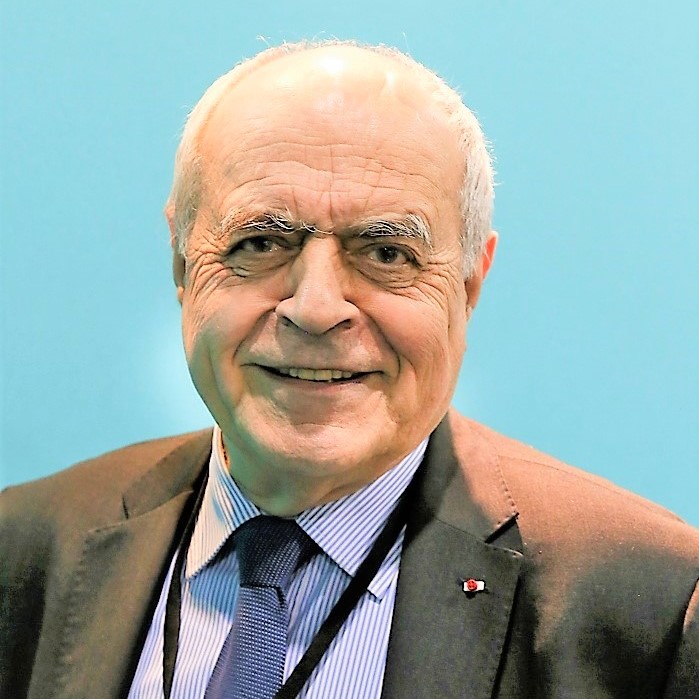
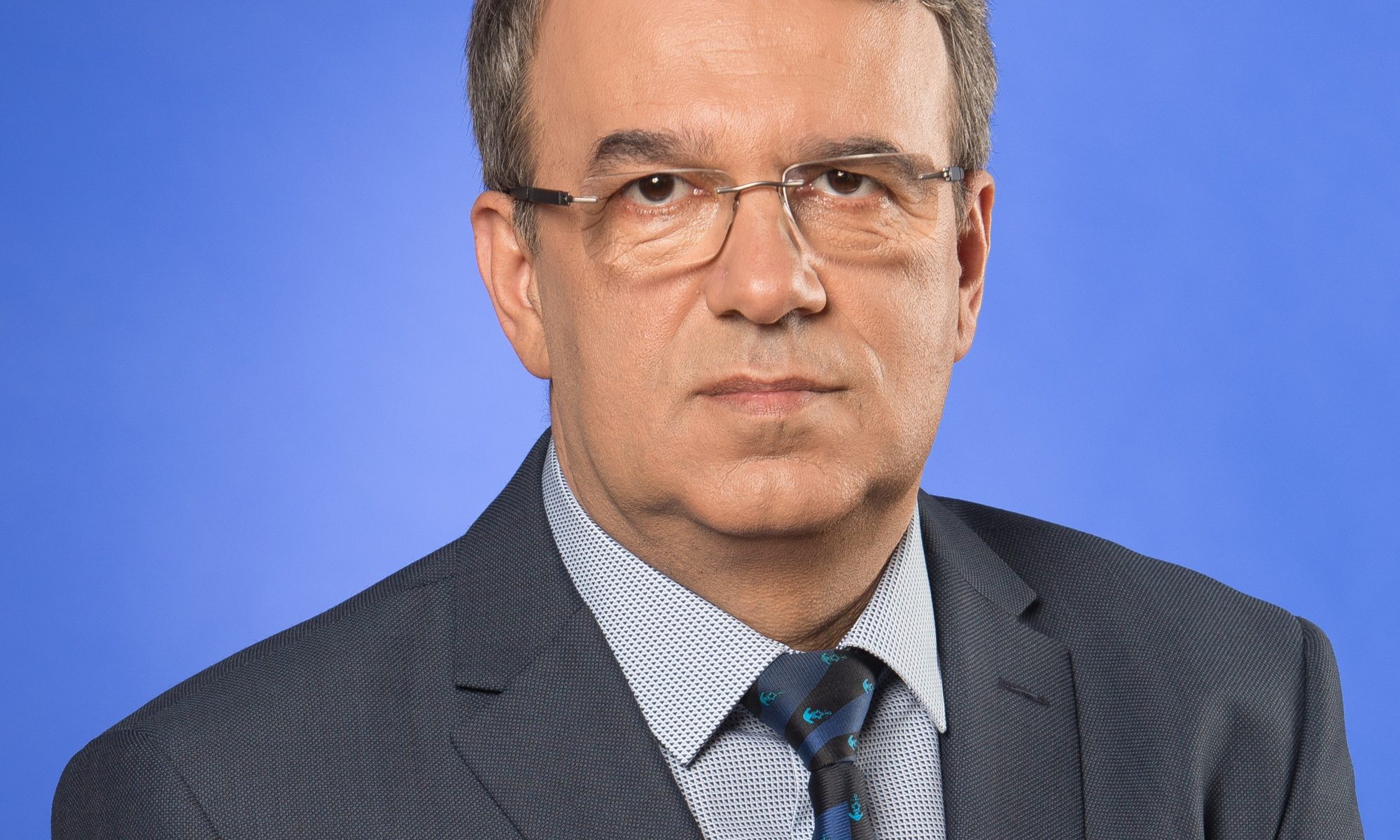
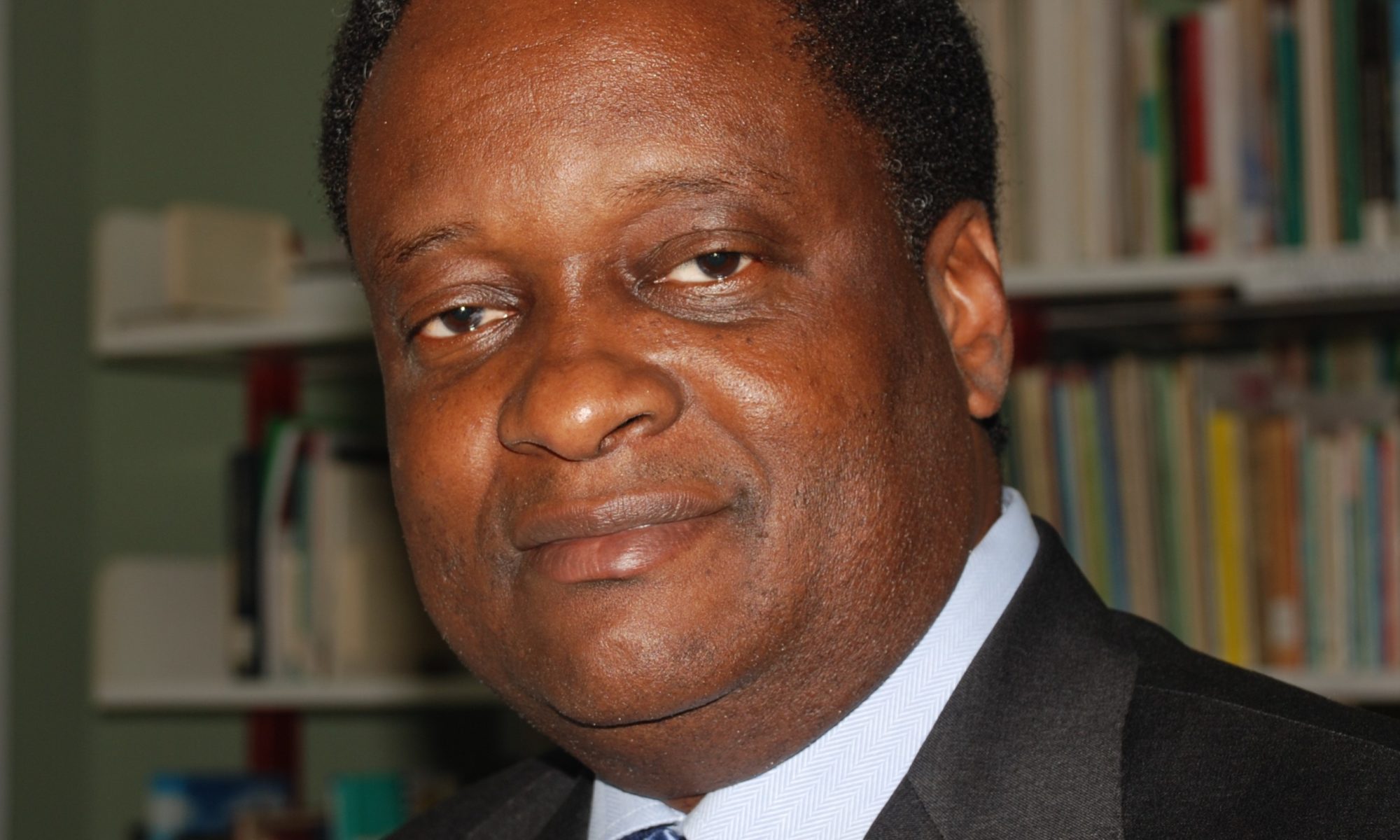
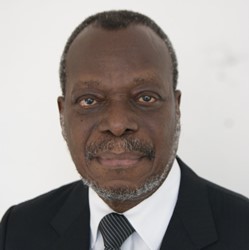
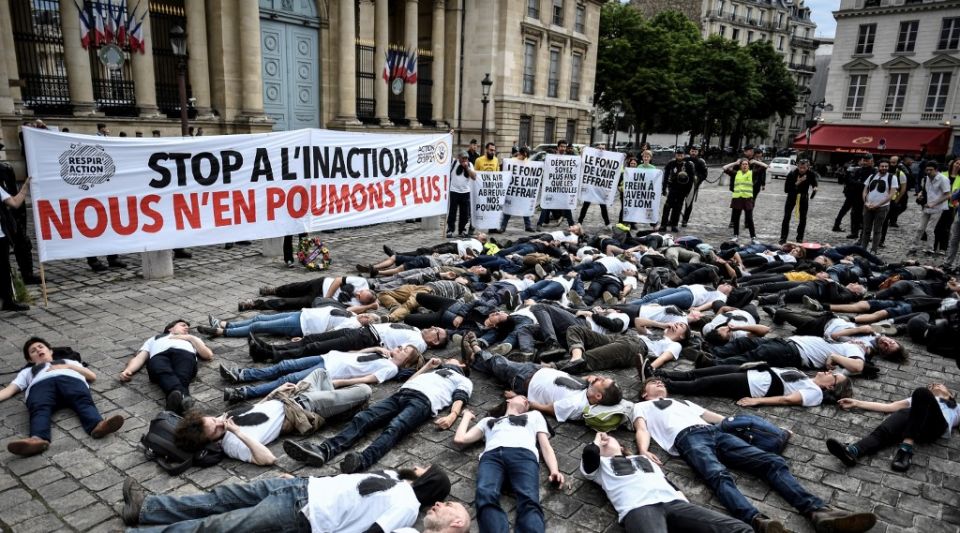
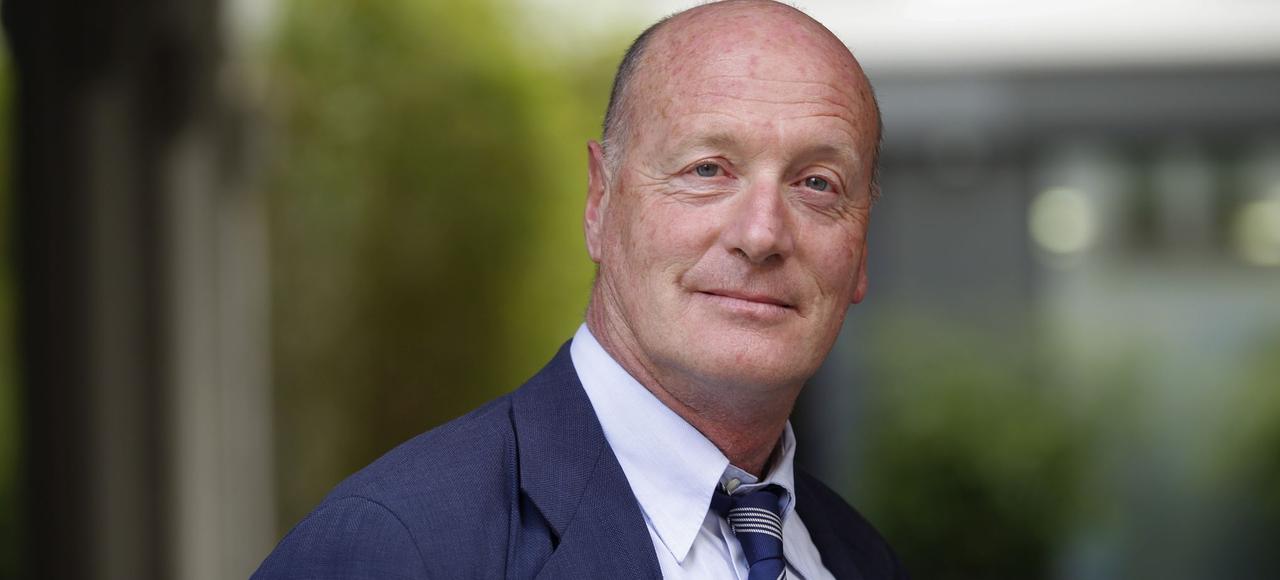
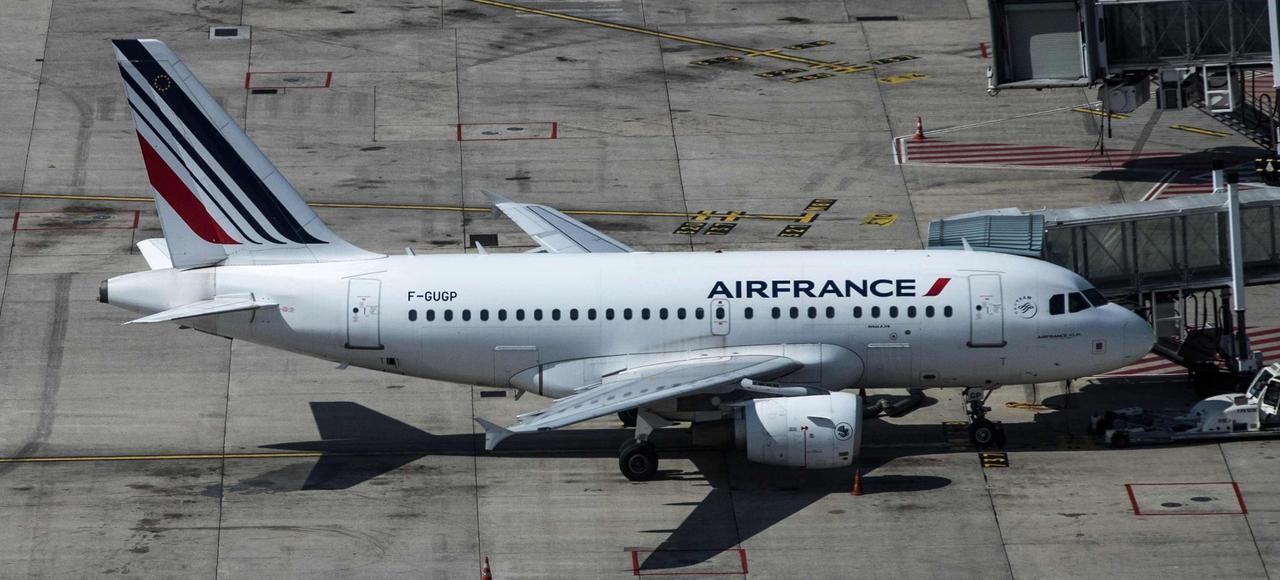

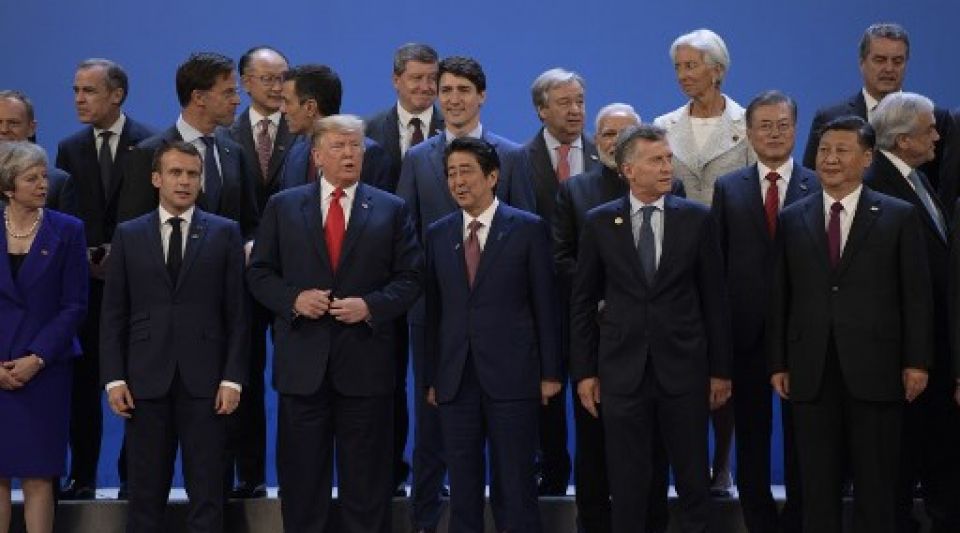
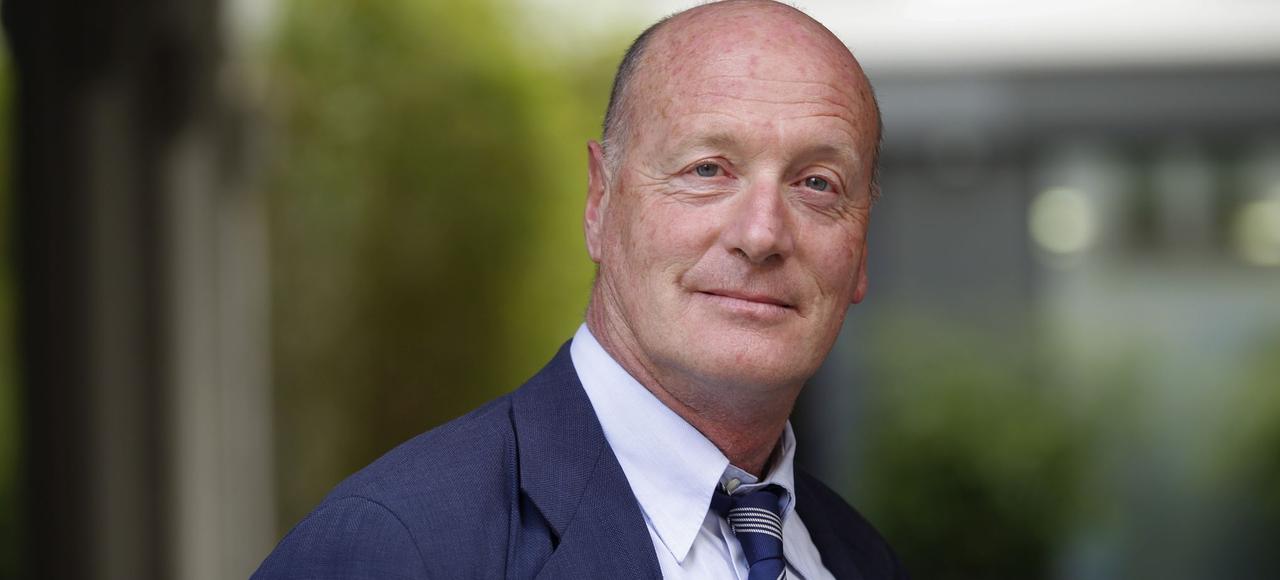
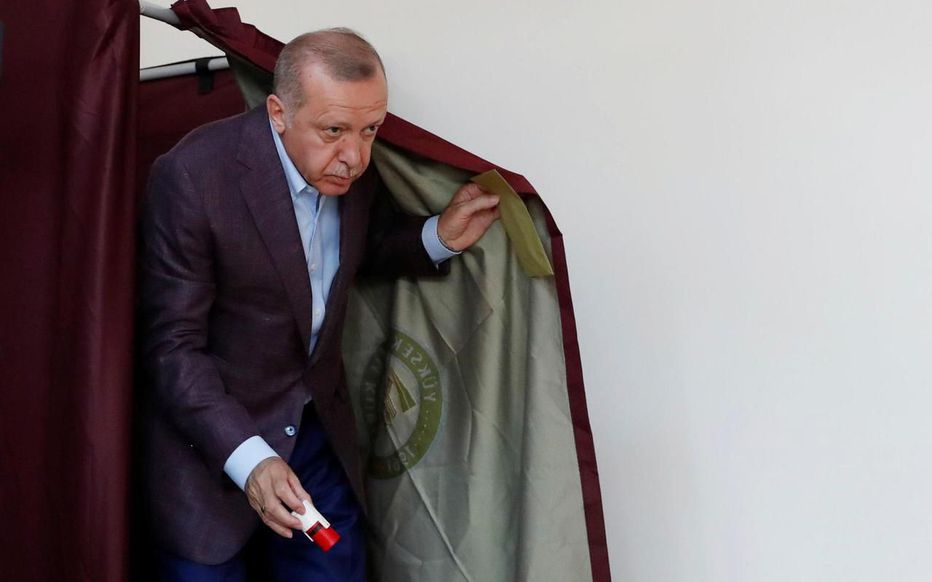
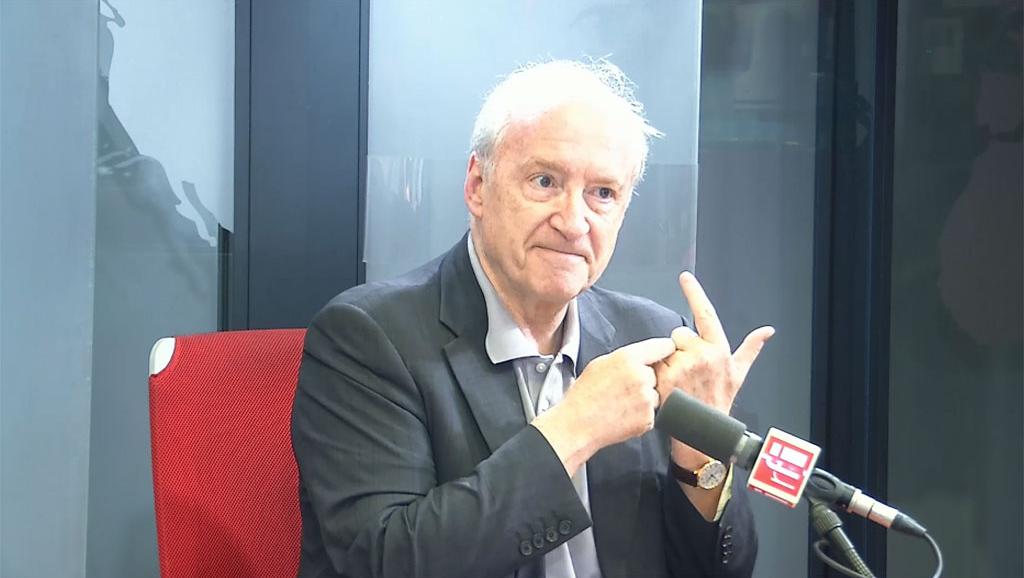
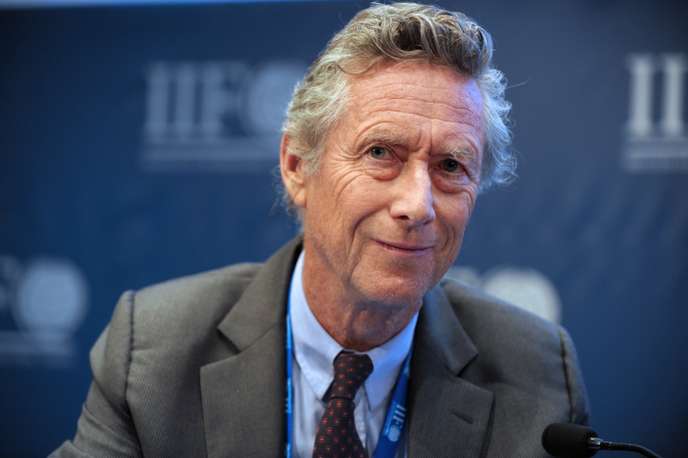

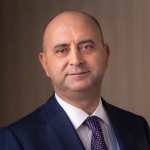
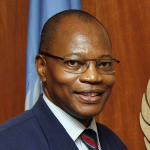
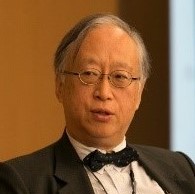
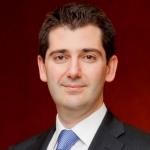
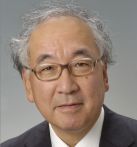
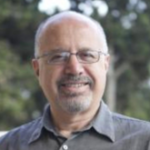
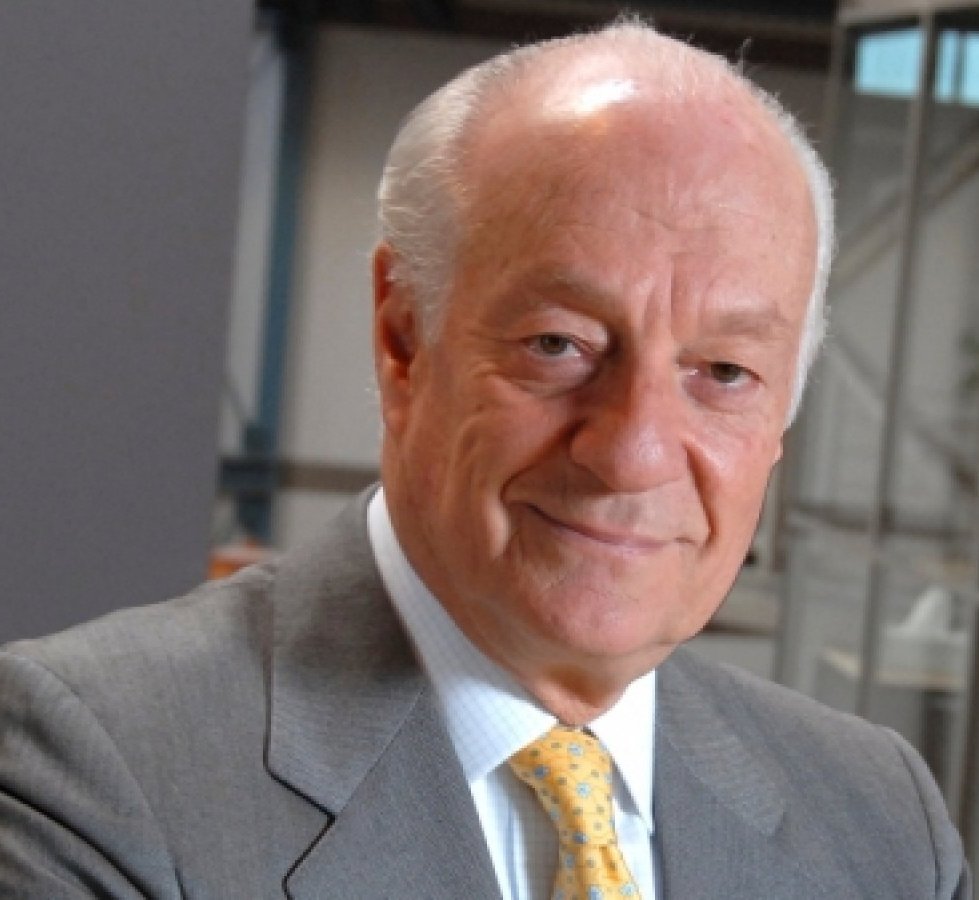
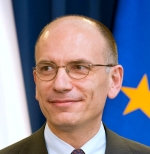
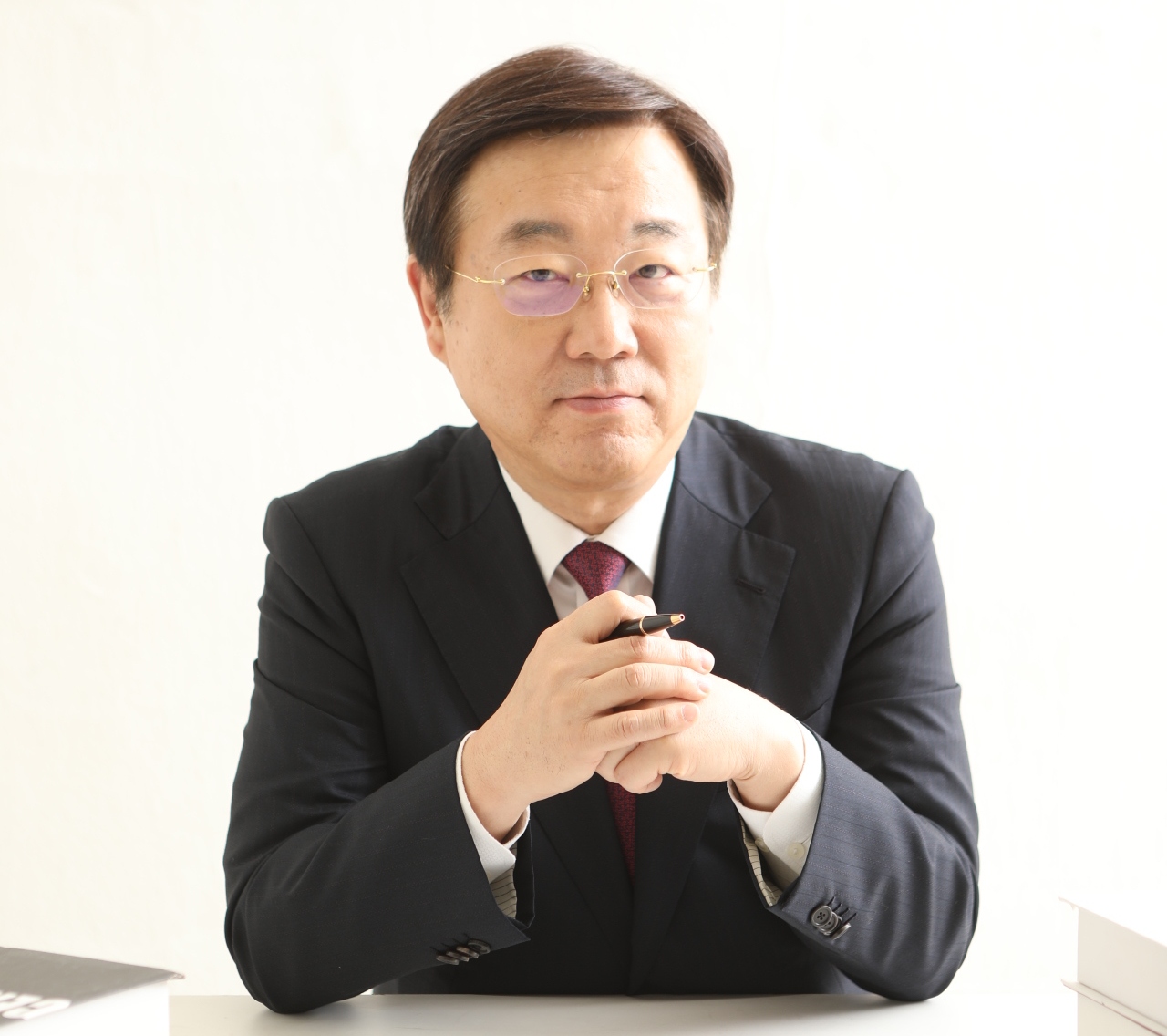


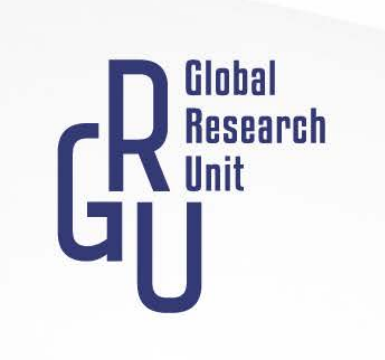
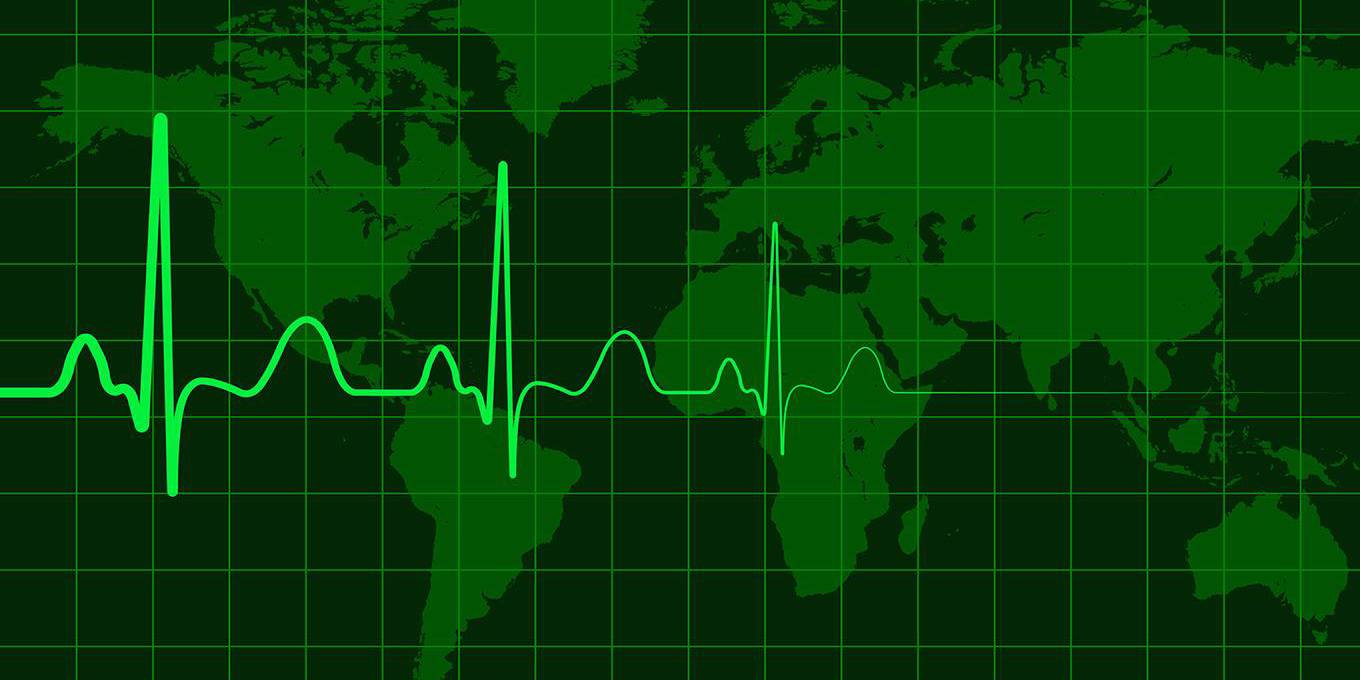
WASHINGTON, DC – In 2015, the international community launched a renewed effort to tackle collective global challenges under the auspices of the United Nations Sustainable Development Agenda and the Framework Convention on Climate Change (COP21). But after an initial flurry of interest, the progress that has been made toward achieving the Sustainable Development Goals and tackling climate change has tapered off. Around the world, many seem to have developed an allergy to increasingly stark warnings from the UN and other bodies about accelerating species extinctions, ecosystem collapse, and global warming.
Now is not the time to debate whether progress toward global goals is a matter of the glass being half-full or half-empty. Soon, there will no longer even be a glass to worry about. Despite global news coverage of civic and political action to address our mounting crises, the underlying trends are extremely frightening. In recent months, the Intergovernmental Panel on Climate Change (IPCC) has marshaled overwhelming evidence to show that the effects of global warming in excess of 1.5oC above preindustrial levels will be devastating for billions of people around the world.
A recent report from the Intergovernmental Science-Policy Platform on Biodiversity and Ecosystem Services serves as yet another wake-up call. Human activities, the report concludes, have put an unprecedented one million species at risk of extinction. The oceans that supply food and livelihoods to more than four billion people are under threat. If we do not take immediate action to reverse these trends, the challenges of playing catch-up later will probably be insurmountable.
For decades, most of the major economies have relied on a form of capitalism that delivered considerable benefits. But we are now witnessing the implications of the Nobel laureate economist Milton Friedman’s famous mantra: “the social responsibility of business is to increase its profits.” A corporate-governance model based on maximizing shareholder value has long dominated our economic system, shaping our accounting frameworks, tax regimes, and business-school curricula.
But we have now reached a point where leading economic thinkers are questioning the fundamentals of the prevailing system. Paul Collier’s The Future of Capitalism, Joseph E. Stiglitz’s People, Power, and Profits, and Raghuram G. Rajan’s The Third Pillar all offer comprehensive assessments of the problem. A capitalist system that is disconnected from most people and unmoored from the territories in which it operates is no longer acceptable. Systems do not work in isolation. Eventually, reality asserts itself: global trade tensions reemerge, populist nationalists win power, and natural disasters grow in frequency and intensity.
Simply put, our approach to capitalism has exacerbated previously manageable social and environmental problems and sowed deep social divisions. The explosion in inequality and the laser focus on short-term results (that is, quarterly earnings) are just two symptoms of a broken system.
To maintain a well-functioning market economy that supports all stakeholders’ interests requires us to shift our focus to the long term. In some ways, this is already happening. But we need to channel the positive efforts underway into a concerted campaign to push systemic reforms past the tipping point. Only then will we have achieved a feedback loop that rewards long-term, sustainable approaches to business.
Most important, we must not succumb to complacency. Short-term tensions over trade and other issues will inevitably capture the attention of people and governments. But to permit the latest headlines to distract us from impending environmental and social catastrophes is to miss the forest for the trees.
Having said that, the impetus for driving positive change cannot be based on fear. The looming crises are both real and terrifying, but repeated warnings to that effect have diminishing returns. People have become immune to reality. Long-term change, then, must come from a readjustment of the market and our regulatory frameworks. Although consumers, investors, and other market participants should keep educating themselves and pushing for change, there also needs to be a thorough and rapid re-examination of the rules and norms governing capitalism today.
We need to impose real costs on market participants who do not change their behavior. That won’t happen through speeches, commentaries, and annual reports. The market economy is a powerful force that needs direction, and regulators and market participants themselves are the ones holding the compass. It is time to get serious about establishing the direct financial incentives and penalties needed to drive systemic change. Only after those are in place can we begin to debate whether the glass is half-empty or half-full.
Bertrand Badré
Published on 06/17/2019 in Project Syndicate
Bertrand Badré, a former Managing Director of the World Bank, is CEO of Blue like an Orange Sustainable Capital. He is the author of Can Finance Save the World?